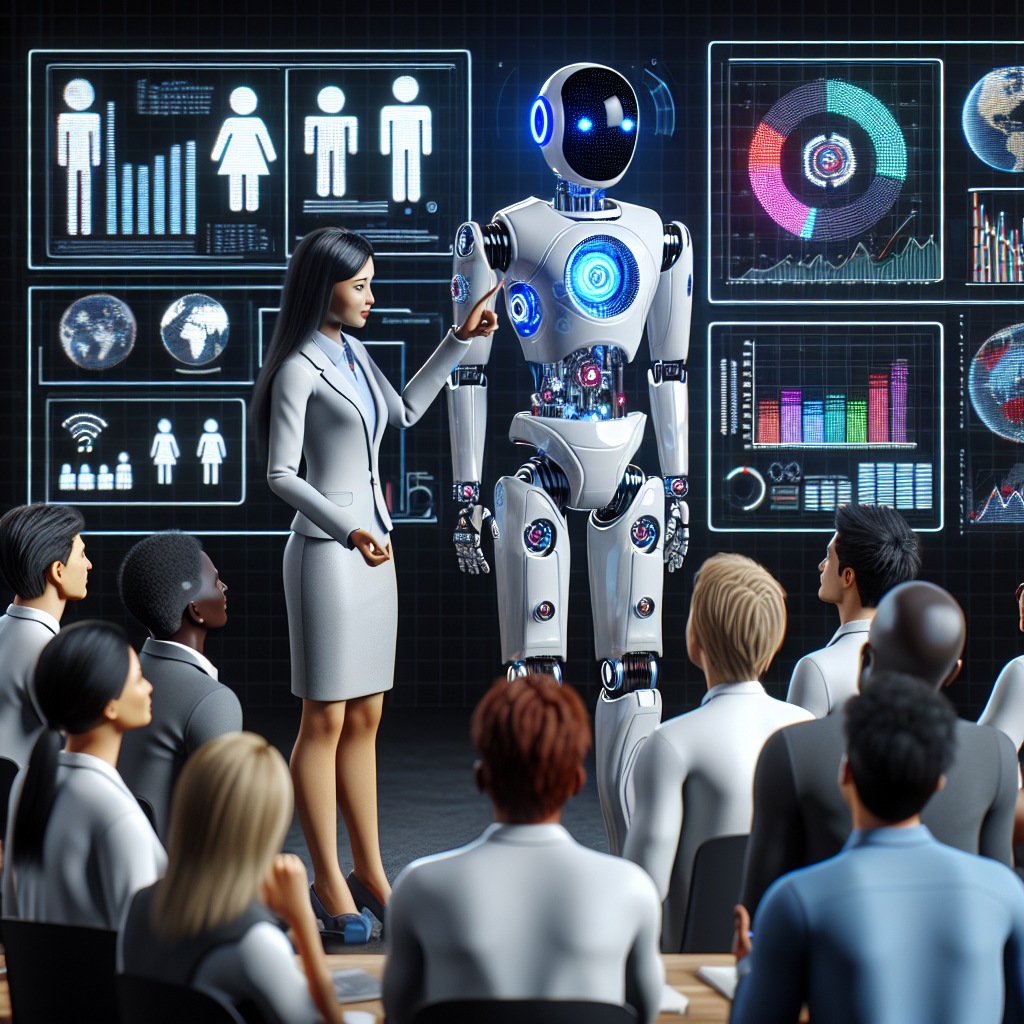Artificial Intelligence (AI) is rapidly transforming various industries, and project management is no exception. As AI technology continues to advance, it is increasingly being integrated into project management education and training programs. This article will explore the future of AI in project management education and training, discussing current trends, potential benefits, challenges, and opportunities for professionals in the field.
Current Trends in AI in Project Management Education and Training
AI is already being used in project management education and training in various ways. One of the most common applications is the use of AI-powered tools and platforms to automate routine tasks and streamline project management processes. For example, AI can be used to analyze project data, identify patterns and trends, and generate insights that can help project managers make more informed decisions.
AI-powered project management tools can also help project managers optimize resource allocation, track project progress, and mitigate risks. These tools can automate tasks such as scheduling, budgeting, and communication, freeing up project managers to focus on more strategic aspects of project management.
Another trend in AI in project management education and training is the use of AI-powered virtual assistants and chatbots to provide personalized support and guidance to project management students and professionals. These virtual assistants can answer questions, provide feedback, and offer suggestions based on the user’s specific needs and preferences.
Furthermore, AI is also being used to develop personalized learning experiences for project management students. AI algorithms can analyze students’ learning styles, preferences, and performance data to create customized learning paths and recommend relevant resources and activities.
Benefits of AI in Project Management Education and Training
There are several benefits of integrating AI into project management education and training. One of the most significant advantages is the ability to enhance learning outcomes and improve the overall quality of education. AI-powered tools can provide real-time feedback, personalized support, and adaptive learning experiences that cater to individual students’ needs and preferences.
AI can also help project management students and professionals acquire new skills and knowledge more efficiently. By automating routine tasks and providing access to relevant resources and information, AI can accelerate the learning process and enable students to develop their capabilities faster.
Furthermore, AI can help project management educators and trainers identify gaps in students’ understanding and tailor their instruction accordingly. By analyzing students’ performance data and learning patterns, AI can provide insights that can inform instructional design and curriculum development.
Challenges and Opportunities for Professionals
While AI offers many benefits for project management education and training, there are also challenges that professionals in the field need to consider. One of the main challenges is the potential impact of AI on traditional teaching methods and practices. As AI technology becomes more sophisticated, educators and trainers may need to adapt their approaches to accommodate AI-powered tools and platforms.
Another challenge is the need for project management professionals to acquire new skills and competencies to effectively leverage AI in their work. Professionals will need to develop a deep understanding of AI technology and its applications in project management to maximize its benefits and mitigate potential risks.
Despite these challenges, AI also presents opportunities for project management professionals to enhance their skills, improve their performance, and advance their careers. By embracing AI technology and incorporating it into their practice, professionals can become more efficient, effective, and innovative in their project management work.
FAQs
Q: How can AI help project managers improve their decision-making process?
A: AI can analyze project data, identify patterns and trends, and generate insights that can help project managers make more informed decisions. By leveraging AI-powered tools and platforms, project managers can optimize resource allocation, track project progress, and mitigate risks more effectively.
Q: What are some examples of AI-powered project management tools?
A: Examples of AI-powered project management tools include automated scheduling software, predictive analytics platforms, and virtual assistants. These tools can automate routine tasks, provide real-time feedback, and offer personalized support to project managers and team members.
Q: How can project management educators and trainers incorporate AI into their teaching practices?
A: Project management educators and trainers can incorporate AI into their teaching practices by using AI-powered tools and platforms to create personalized learning experiences, provide real-time feedback, and analyze students’ performance data. By leveraging AI technology, educators can enhance learning outcomes and improve the overall quality of education.
Q: What skills do project management professionals need to develop to effectively leverage AI in their work?
A: Project management professionals need to develop skills in AI technology, data analysis, and machine learning to effectively leverage AI in their work. By acquiring these skills, professionals can maximize the benefits of AI technology and enhance their performance in project management.
In conclusion, the future of AI in project management education and training is promising, with many opportunities for professionals to enhance their skills, improve their performance, and advance their careers. By embracing AI technology and incorporating it into their practice, project management professionals can become more efficient, effective, and innovative in their work.

